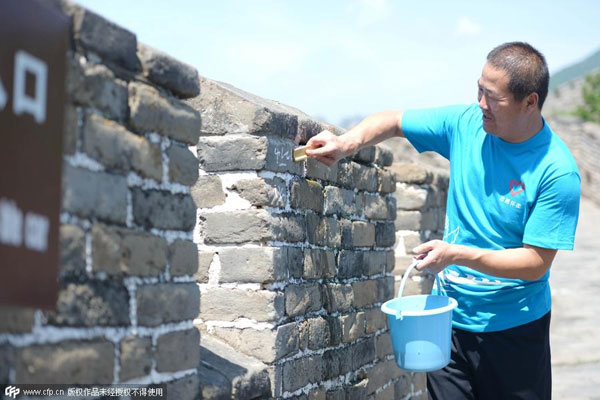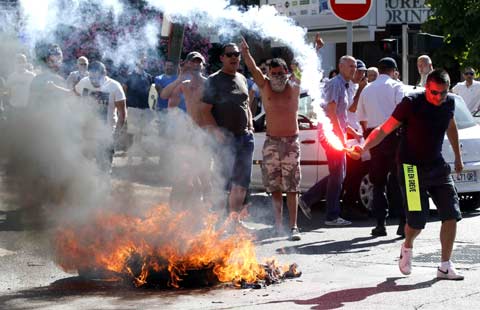
 |
|
Graffiti is cleared by a volunteer from a section of the Great Wall in Beijing, June 14, 2014. [Photo/CFP] |
"We should not solely rely on local cultural relic departments to protect our national heritage," Dong said. "Besides more investment, central and local governments should bring in private capital and encourage local people to get involved."
Moreover, as the Great Wall is a large structure running through 11 provinces, regions and municipalities, a holistic conservation approach should be taken, and a systematic protection plan must be drawn up, which defines and coordinates the obligations of different provinces and governmental departments, Dong said.
Liu Zhimin, official of cultural heritage bureau of Hebei, suggested that each section of the wall should be evaluated before any repair or construction work.
Additionally, Dong noted: "Only about 1 percent of the Great Wall has been developed into tourist sites, these sections are in much better shape than the 'wild' parts," he said.
"After development, authorities can better supervise the behavior of tourists and adopt more efficient preservation measures," he said.








